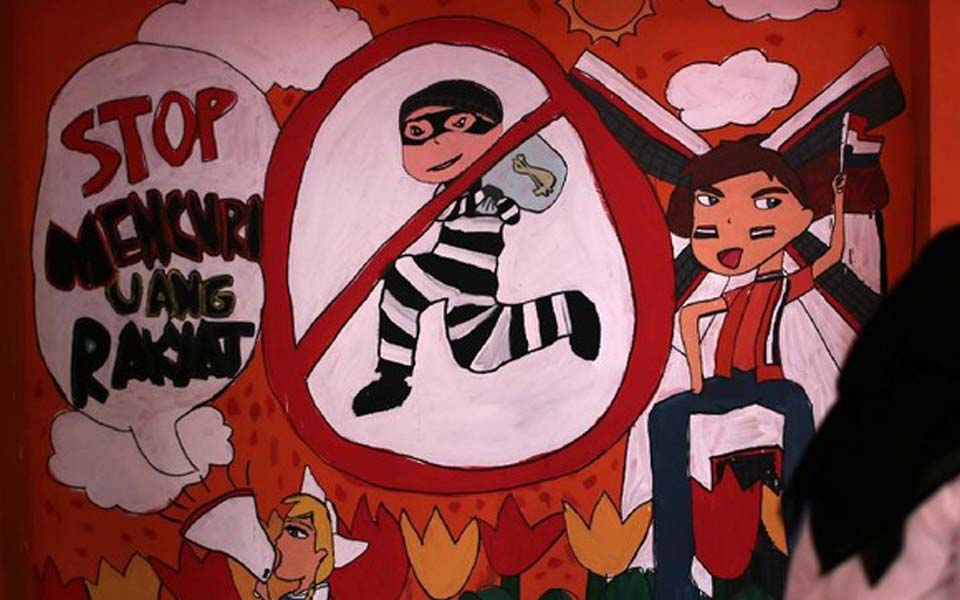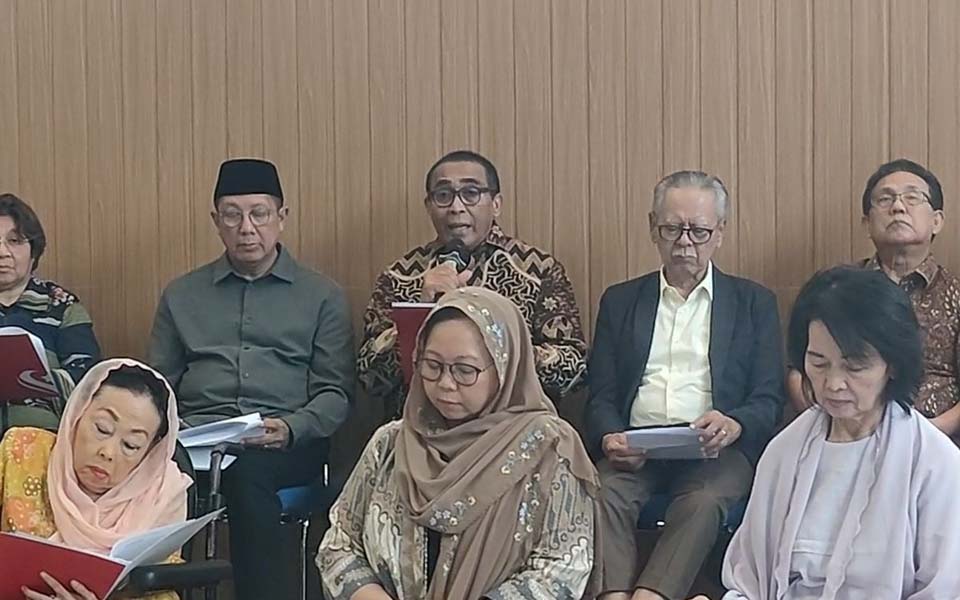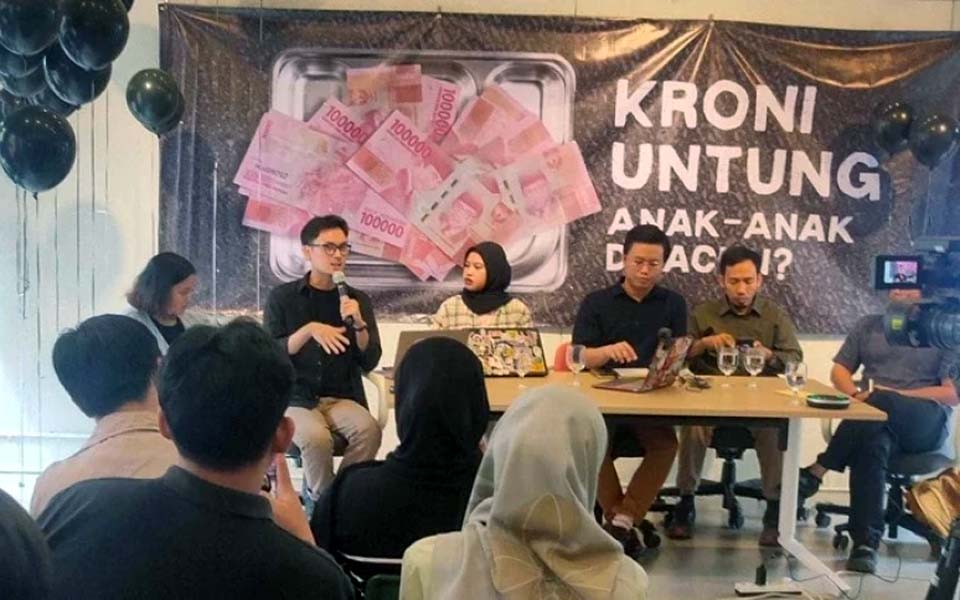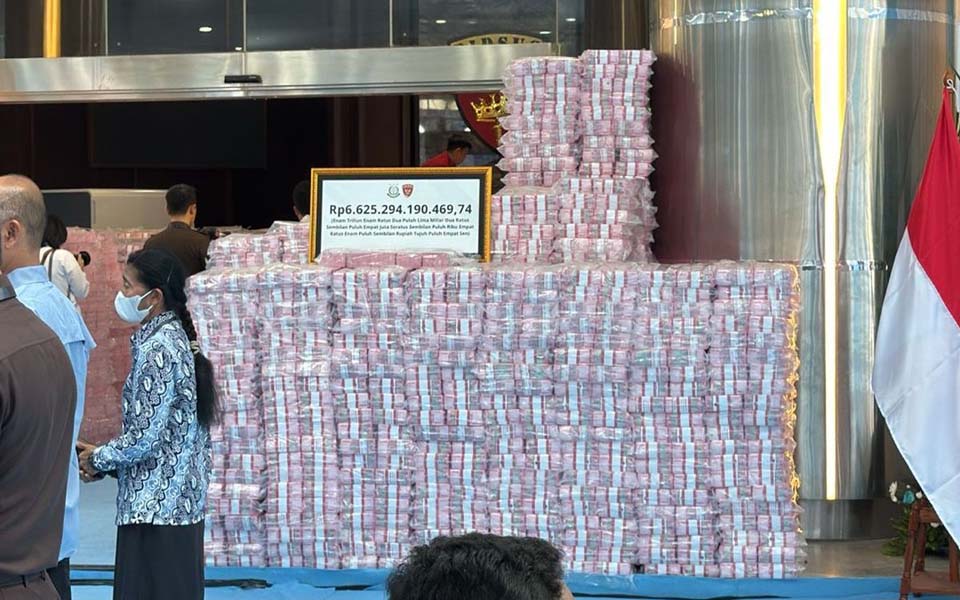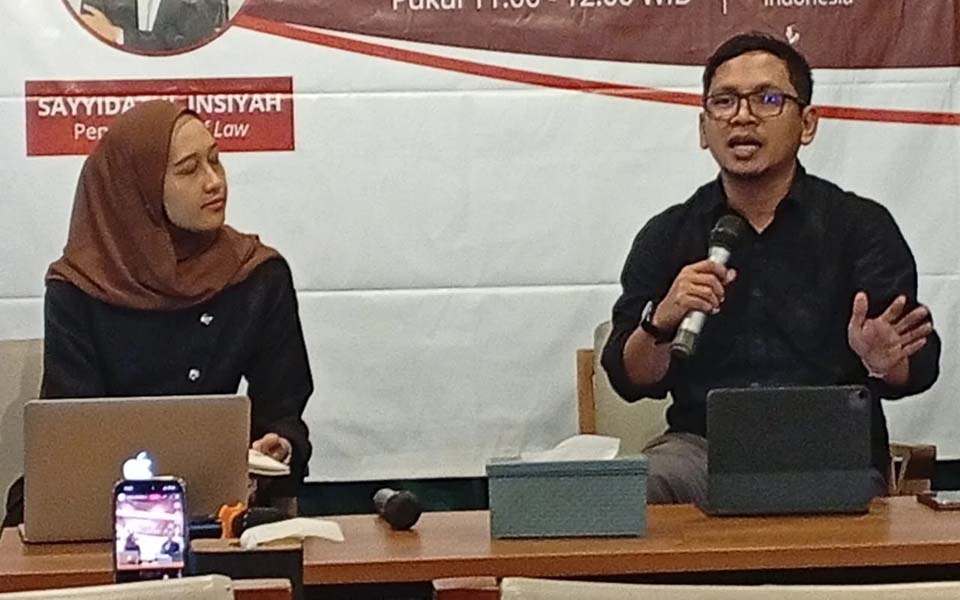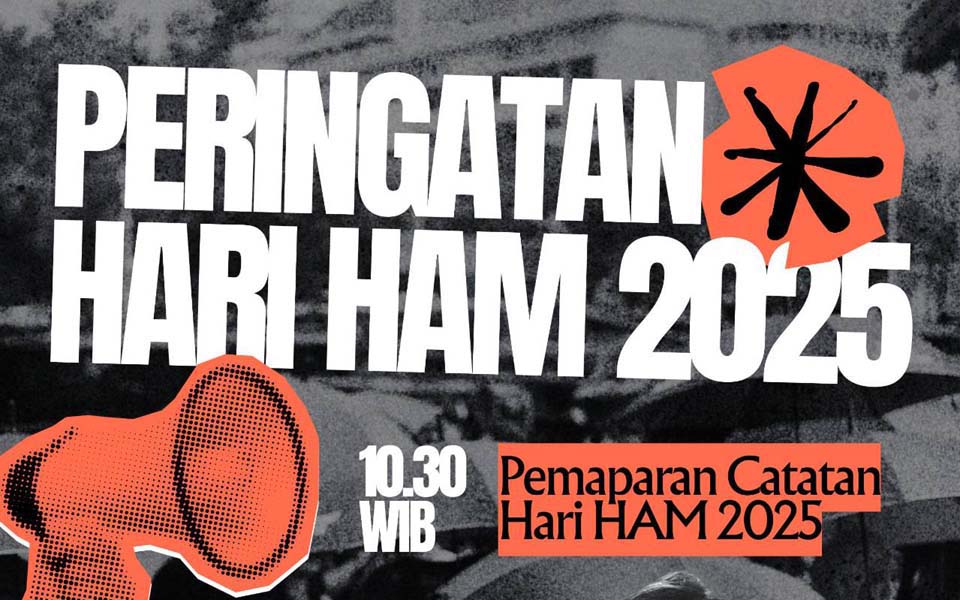Jauh Hari Wawan S, Sleman – The Gajah Mada University (UGM) academic community has issued a statement through the "Campus Accuses: Uphold Ethics and the Constitution, Strengthen Democracy" movement, in which they criticised the current state of democracy and called for the restoration of ethics and the constitution that has been ripped to shreds over for the past five years.
The statement at the at UGM's Balairung hall was attended by several UGM professors such as Koentjoro, Wahyudi Kumorotomo, Budi Setiadi Daryono and Sigit Riyanto. Also present was lecturer Zaenal Arifin Mochtar and UGM Vice Chancellor Arie Sujito.
In addition to this, also attending the event was Indonesian Islamic University (UII) Chancellor Professor Fathul Wahid, Widya Mataram University Chancellor Edy Suandy, the chairperson of the Islamic mass organisation Muhammadiyah Leadership Board Law and Human Rights Division Busyro Muqoddas as well as a number of artists and cultural figures including the UGM Student Executive Council (BEM) chairperson and other student activists.
In the statement read out by Professor Daryono, they stated that universities are a fortress of ethics and academics are people of science responsible for enlightening the life of the nation, maintaining civilisation (civility) and realising justice and prosperity.
"This is a momentum for us as citizens to carry out a reflection and evaluation of the deterioration of institutional quality in Indonesia and its impact on the life of the nation and state", said Daryono when reading out the statement at the UGM Balairung on Tuesday March 12.
Reformasi 1998 was a people's movement to restore the constitutional mandate, after it was torn apart by corruption, collusion, and nepotism (KKN) during the New Order era of former president Suharto.
The pendulum of reformasi however has reversed direction since October 17, 2019, which was marked by the revision of the Corruption Eradication Commission (KPK) Law followed by the enactment of several other laws that were seen as controversial such as the Minerals and Coal Mining (Minerba) Law, the Omnibus Law on Job Creation (Cipta Kerja) and so forth.
"Violations of ethics and the constitution increased dramatically ahead of the 2024 elections and worsened the quality of formal as well as informal institutions. The retreat of this institutional quality will created obstacles for development for whoever the Indonesian President is in 2024-2029 and thereafter. The consequence is that it will be increasingly difficult to realise the ideals of a Golden (emas) Indonesia in 2045, what in fact is imagined is an Anxious (cemas) Indonesia", he said.
The constitution, he continued, provides an explicit mandate to all Indonesian citizens, to enlighten the life of the nation, build civilisation, maintain the sustainability of development, maintain the environment and uphold democracy.
Meanwhile academics carry out the duties of the constitution in enlightening the life of the nation and building civilisation through the Tri Dharma of higher education (the three pillars of education: instruction, research and public service). This task, according to Daryono, can only be done when ethics and free speech are upheld.
"Violations of state ethics by the political elite, will be easily emulated by various elements of society. This threatens the continuity of the nation and the state, and keeps Indonesia from being a constitutional state", he continued.
Meanwhile, UGM Faculty of Social and Political Science professor Wahyudi Kumorotomo conveyed three main points in the campus accuses moral movement.
First, they called for universities as fortress of ethics to become independent scientific institutions that had full academic freedom to develop scientific knowledge and articulate the truth based on facts, reasoning and scientific research.
Second, that all elements of civil society continue to be critical of the running of government and endlessly fight for the interests of the ordinary people. That religious social organisations (ormas), the press, non-government organisations (NGOs) and civil society organisations (CSOs) not be coopted, let alone become an extension of the hands of government.
Third, the holders of executive, legislative and judicial power are asked to uphold the principles of democracy in a substantial manner and revere the mandate of the constitution in exercising power for the sake of realising the ideals of the proclamation and promises of reformasi. Dynasty politics cannot be allowed to be given space under a democratic system.
"Enforcing the supremacy of the law and eradicating all forms of corruption, collusion and nepotism without tolerating violations of law, ethics and morals in the organisation of the life of the nation and state", he said.
Furthermore, seriously realising economic and social justice for all citizens and not allowing the country to be hijacked by the oligarchy and opportunist politicians who continue to reap profits through policies that harm the ordinary people in general.
"As academics who understand constitutional rights and responsibilities, we [seek to] awaken the conscience of all elements of society to work together to rebuild the ethics and norms that have been torn apart and restore the dignity of the constitution that has been violated. What we are fighting for now will determine the Indonesia that we will bequeath to the next generation of children and grandchildren", he concluded. (apl/apl)
[Translated by James Balowski. The original title of the article was "Sikapi Kondisi Demokrasi, Civitas Akademika UGM Bikin Gerakan 'Kampus Menggugat'".]









